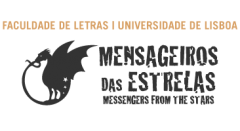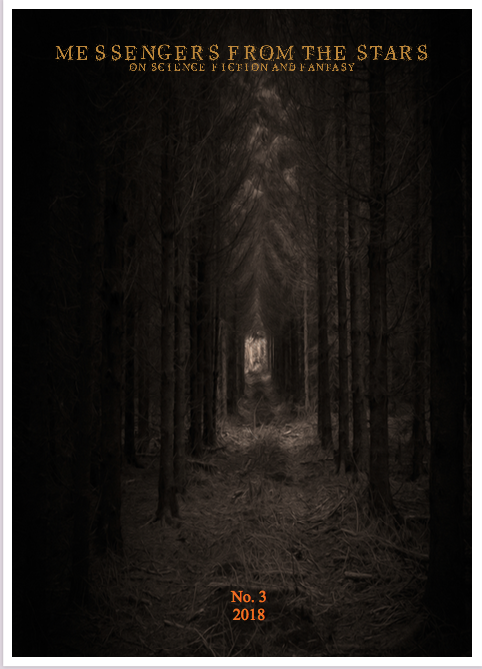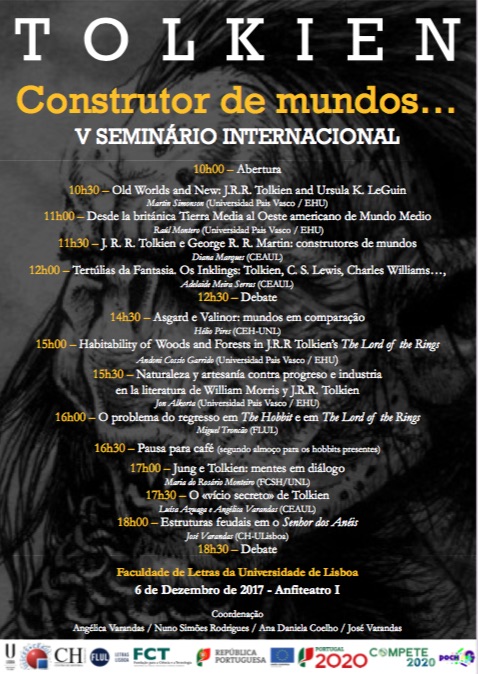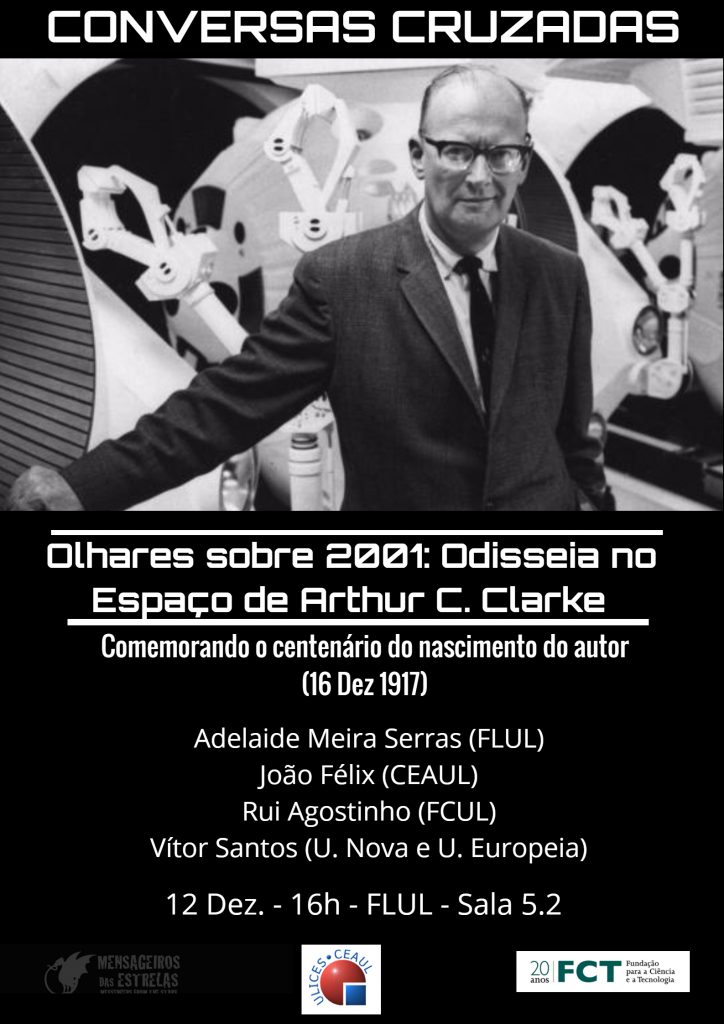
Science Fiction and Fantasy International Conference
Messengers from the Stars: Episode VI
Online Conference
School of Arts and Humanities, University of Lisbon
November 25-26, 2021
Nature and Overnature in SF and Fantasy Discourses
Science Fiction and Fantasy are lasting fields of inquiring into today’s world. They have become privileged means to question issues of aesthetic, ethical, political, social, economic, environmental and historical nature with high impact on contemporary societies. They have promoted hot-button issues and rich critical debates in literature as well as in cinema, TV, and videogames among other media.
The University of Lisbon Centre for English Studies (ULICES) invites you to take part in the 6th International Conference Messengers from the Stars: On Science Fiction and Fantasy to be held at the School of Arts and Humanities, University of Lisbon, on November 25-26, 2021. This year Episode VI will focus on the theme “Nature and Overnature in SF and Fantasy Discourses”.
Since humankind’s early days, our relationship with nature has undergone different stages and attitudes. From fear and antagonism to deep integration or attempt at subjugation, we humans have tried both to understand our environment and make the most of it. “What is our bond with Nature? Are we part of it or are we its destroyers?”; “What will be the consequences of our former and current actions towards Nature?”; “Are we the dominant species or is this just a human delusion?”; “What is the connection between Nature and social environment?”.
Also, under scrutiny is our inner nature, either as an immaterial everlasting sector or as a mutable human feature: “In distancing ourselves from Nature are we losing our natural humanity?”; “Are we more or less naturally human than our ancestors?”; “How has technology challenged the nature of our humanity?”; “Are we becoming over-natural?”; “Is there a universal human nature or do we embrace plural human natures?”
These are ever-present themes in Fantasy narratives, as masterly explored in Tolkien’s legendarium and C. S. Lewis’ Narnia Chronicles, as well as in many other 20th and 21st century authors, namely Ursula Le Guin’s Earthsea cycle. They are also at the core of many SF visions, since the very beginning of the genre with Mary Shelley’s Frankenstein, H. G. Wells’ The Island of Dr. Moreau and John Wyndham’s The Day of the Triffids, to name just a few.
Inspired by these pioneering texts and fed by advances in technology, such issues have become more and more complex in Fantasy and SF literature, cinema, TV series, comics and graphic novels, music, and other art forms. Moreover, we are witnessing a turning point in our relationship with nature, the most dramatic since our existence, which clearly has raised new doubts and anxieties but also new forms of self-awareness about our role in the world. The COVID-19 pandemic has alerted us to the dangers of our current ways of living as well as to our vulnerabilities. This is the time to find responsible solutions able to open up, for us and for the next generations, a healthier future.
We welcome papers of 20 minutes as well as joint proposals for thematic panels consisting of 3 to 4 participants. Postgraduate and undergraduate students are also welcome to participate.
Topics may include but are not limited to the following:
- Artificial Intelligence;
- Ecocriticism;
- Fantasy, SF and ethics;
- Human nature and natural environment;
- Nature/over-nature and the human body;
- Natural and social environment;
- Utopias/Dystopias.
Call for pitches 5MP (five-minute pitches)
This year we are also interested in hearing from you if you are an undergraduate student (MA or PhD) and have a great project still in its early stages. The Five-Minute Pitch Call is inspired in the international competition Three-Minute Thesis (3MT). This is a great opportunity to showcase the innovative nature of your proposal even if there are no results yet. Break down your topic and tell us why everyone should be paying attention to your research.
Please, communicate your ideas effectively. Pitches will need to include (though not restricted to) the following: Name, Affiliation and Contact Information; Overview and Aim; Research Question; Material and Methods; and So what? (originality and relevance).
Your pre-recorded pitch should be no longer than 5 minutes and will be available on the conference website.
Deadlines:
Proposals for individual papers, as well as for thematic panels, should have 250 words maximum and be sent to mensageirosdasestrelas@gmail.com along with a short biographical note (100 words maximum) by May 28, 2021.
Notification of acceptance will be sent by July 5, 2021.
Working Languages: Portuguese and English
Registration fees:
Early bird registration: July 6 – September 17
30 € / Students: 10 €
Late bird registration: September 18 – October 19
60 € / Students: 20 €
Notes:
- Only after proof of payment is registration effectively considered.
- Undergraduate and post-graduate students must send proof of student status with their registration.
- The registration fee includes attendance of all sessions, digital conference material, and a certificate of participation.

 See the new edition
See the new edition 

